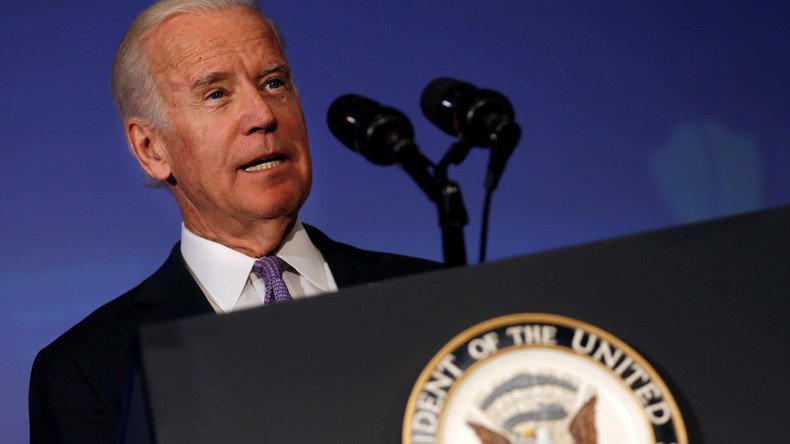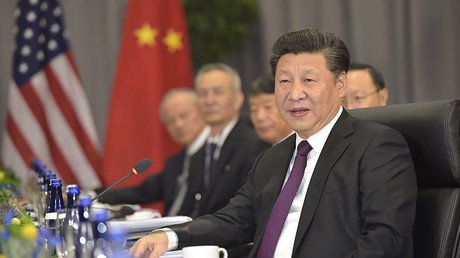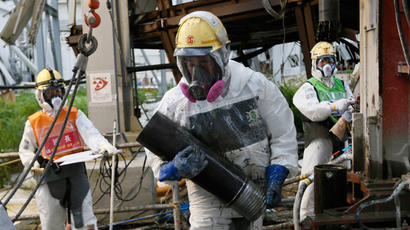Tame N. Korea or Japan may go nuclear ‘virtually overnight’, Biden warns Xi

Japan may obtain nuclear weapons “virtually overnight” if the North Korean threat persists, US Vice-President Joe Biden warned China’s Xi Jinping. He urged to exert influence on Pyongyang, reassuring that US military buildup in Asia is not targeting China.
For years, the United States and world powers have tried to negotiate an end to North Korea’s nuclear and ballistic missile development programs. While pursuing a variety of responses to the proliferation challenges posed by Pyongyang, mainly focused on military cooperation with allies in the region, Washington failed to achieve any tangible results in curbing the ‘North Korean threat’.
On Wednesday, North Korea test-launched two medium-range ballistic missiles, the latest in a series of launches in violation of UN Security Council resolution. Each missile launch, be it successful or not, is traditionally accompanied by belligerent rhetoric by North Korea towards the US and its regional allies that fall under the American security umbrella.
From the start of the year, the US has contemplated on a number of options to tackle the increased threat. Since March, the US has been negotiating with South Korea to place Terminal High Altitude Area Defense (THAAD) system on the peninsula.
China has strongly objected to such a move, arguing that missile defense complex will threaten its sovereignty. As the negotiations on the issue of THAAD deployment continues, Biden claimed that the threat from North Korea, if not contained, may force Japan to seek nuclear weapons.
Recalling a conversation Biden allegedly had with the Chinese president, the VP said that unless Beijing agrees with moving US missile defense systems to South Korea, Washington will be forced to respond to protect its security.
“When I tell President Xi, you have to understand we got a guy up there in North Korea who is talking about building weapons that can strike, nuclear weapons strike the United States and not only Hawaii and Alaska, but… the mainland of the United States,” Biden told PBS host Charlie Rose in an interview broadcast Monday. “And I say, so we’re going to move up our defense system, and he says no, no, no, wait a minute, my military thinks you’re going to try to circle us.
“What would you do? Do you think we should stand back?” Biden continued. “What happens if we don't work out something together on North Korea? What happens if Japan, who could tomorrow, could go nuclear tomorrow?”
As an alternative to reduce tensions, Biden urged China to use its resources to “single greatest ability to influence North Korea.”
The Japanese program to develop nuclear weapons conducted laboratory stage testing during World War II. But after the American atomic bombings of Hiroshima and Nagasaki in August 1945 and the subsequent Japanese surrender, the US became responsible for providing Tokyo with “security guarantees.”
Today, Japan’s nuclear energy infrastructure makes it eminently capable of constructing nuclear weapons at will, as the country possesses civilian nuclear technology. While the US nuclear umbrella has led to a strong policy of non-weaponization of nuclear technology, in the face of nuclear weapons testing by North Korea, the reversal of policy seems possible.
Despite possessing some 47 metric tons of separated plutonium, enough to make 6,000 nuclear bombs, following Biden’s statement, Japanese Deputy Chief Cabinet Secretary Hiroshige Seko promised Friday that Japan will “never possess nuclear weapons.”














